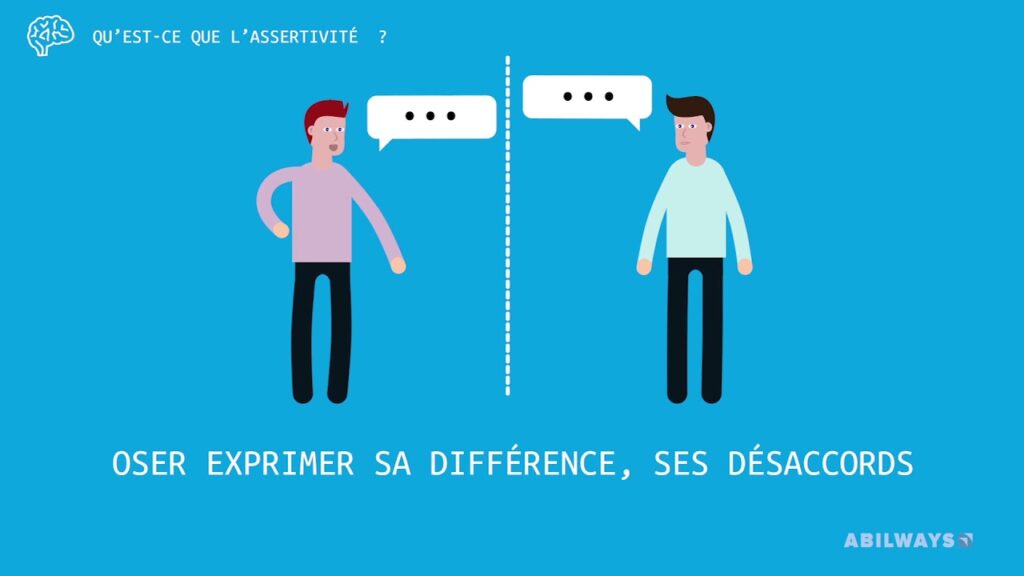
Asserte – Learn More With Just One Click!
In a world that constantly demands effective communication and confident self-expression, mastering the art of assertiveness becomes paramount.
Assertiveness is not just a communication skill; it’s a powerful tool that empowers individuals to express their thoughts, needs, and feelings with clarity while respecting the perspectives of others.
In this comprehensive guide, we delve into the nuances of assertiveness, providing you with practical insights and actionable strategies to navigate various aspects of life with confidence.
Table of Contents:
Understanding Assertiveness – Here To Know!
Assertiveness is often misunderstood, with some viewing it as aggression or confrontation. However, it is a distinct communication style characterized by expressing oneself openly, honestly, and confidently while respecting the rights and opinions of others.

It strikes a balance between passivity and aggression, fostering healthy communication and relationship dynamics. This style encourages active listening and builds trust between parties. It also encourages problem-solving and compromise, which is essential for successful collaboration.
This communication style fosters a sense of mutual respect and understanding, enabling parties to work together to find solutions that benefit everyone. Ultimately, this communication style leads to better relationships and better collaboration.
Read Also: MASALQSEEN – CLICK TO UNRAVEL THE STORY!
The Assertiveness Spectrum – Check Now!
At its core, assertiveness exists on a spectrum between passivity and aggression. On one end, passivity involves avoiding confrontation and failing to communicate one’s needs effectively.
On the other end, aggression manifests as overly forceful communication that disregards the feelings and opinions of others.
Assertiveness, positioned in the middle, encourages clear and direct communication without infringing on the rights of others. This style also emphasizes mutual respect and understanding, which is essential for successful collaboration.
It helps to create an atmosphere of collaboration and trust, allowing parties to work together to reach a common goal.
Benefits of Developing Assertiveness – Explore Now!
1. Enhanced Communication Skills:
Assertiveness cultivates effective communication by allowing individuals to express themselves clearly and confidently. This, in turn, fosters understanding and strengthens interpersonal connections.
2. Increased Self-Confidence:
Mastering assertiveness boosts self-confidence as individuals learn to navigate conversations with conviction. This newfound confidence extends beyond communication to positively impact various aspects of life.
3. Conflict Resolution:
Assertive individuals excel in resolving conflicts, as they can address issues directly without resorting to aggression. This skill promotes healthier relationships both personally and professionally.
Practical Strategies for Assertiveness – Go In-Depth!
1. Clear and Direct Communication:
Express your thoughts and needs clearly, avoiding ambiguity. Use “I” statements to articulate your feelings and perspective without blaming others.
2. Active Listening:
Listen attentively to others, demonstrating empathy and understanding. Acknowledge their viewpoints, reinforcing a mutual respect for different opinions.

3. Setting Boundaries:
Establishing and maintaining boundaries is crucial for assertiveness. Communicate your limits and expectations to ensure healthy and respectful interactions.
4. Constructive Feedback:
When providing feedback, focus on specific behaviors and their impact. Offer constructive criticism to facilitate growth without causing defensiveness.
Read Also: LAURA FUENTES FOOD LIFESTYLE ENTREPRENEUR – A COMPLETE GUIDE
Overcoming Common Challenges – Gain Your Knowledge!
1. Fear of Rejection:
Fear of rejection often hinders assertiveness. Recognize that not everyone will agree with you, and that’s okay. Embrace differences while staying true to your values.
2. Fear of Conflict:
Fear of conflict can cause people to avoid speaking up or standing up for themselves. Embrace conflict as a way to learn and grow. 3. Fear of Self-Promotion: Fear of self-promotion can lead to people avoiding opportunities to advance their careers. Take pride in your strengths and accomplishments.
2. Dealing with Criticism:
Constructive criticism is an inevitable part of life. Approach it with an open mind, using it as an opportunity for personal growth rather than viewing it as a personal attack. Building Trust With Others Be honest, open, and trustworthy with the people you interact with. This will lead to better communication and deeper relationships.
Incorporating Assertiveness in Different Contexts – Uncover!
1. Professional Settings:
In the workplace, assertiveness is a valuable asset. It can lead to more effective collaboration, enhanced leadership skills, and increased career satisfaction.
2. Personal Relationships:
Assertiveness fosters healthier personal relationships by promoting open communication, mutual respect, and understanding. It forms the foundation for strong, lasting connections.
Assertiveness and Emotional Intelligence – Discover The Facts!
1. Self-Awareness:
Developing assertiveness requires a deep understanding of oneself. Cultivate self-awareness to recognize your emotions, motivations, and communication style.
2. Empathy:
Empathy plays a crucial role in assertiveness. Understanding the emotions and perspectives of others enhances your ability to communicate effectively and build meaningful connections.
You can also practice assertive communication in your daily life, such as setting boundaries and setting clear expectations with others. Taking these steps can help you become a more confident and assertive communicator.
Assertiveness Training and Resources – Dive Into The Information!
Explore various resources, including books, workshops, and online courses, to further enhance your assertiveness skills. Investing in your personal development can lead to lasting positive changes in your communication style.

Practicing assertiveness can help you to better express your feelings and opinions, while also allowing you to listen to and empathize with others. It can also help you to better manage difficult conversations and build relationships based on trust and respect.
Read Also: EASYERPAI – DIVE DEEP INTO THE INFORMATION!
Conclusion:
At the end article
Assertiveness transcends mere communication skills; it stands as a potent instrument empowering individuals to articulate their thoughts, needs, and feelings with precision, all while honoring the perspectives of others.
FAQS:
1. What is Assertiveness?
Assertiveness is a communication style that balances openness and respect, allowing individuals to express themselves confidently without infringing on the rights of others.
2. Why is Assertiveness Important?
Mastering assertiveness enhances communication skills, boosts self-confidence, and facilitates conflict resolution in various personal and professional contexts.
3. How Does Assertiveness Differ from Aggression?
Unlike aggression, assertiveness involves clear and direct communication without disregarding the feelings and opinions of others, finding a balanced middle ground.
4. What Benefits Come with Developing Assertiveness?
Benefits include improved communication, increased self-confidence, and effective conflict resolution, positively impacting both personal relationships and professional settings.
5. What Practical Strategies Promote Assertiveness?
Strategies include clear communication, active listening, setting boundaries, and providing constructive feedback to navigate interactions confidently.
6. How Can Assertiveness be Applied in Different Contexts?
Assertiveness proves valuable in professional settings for collaboration and leadership and in personal relationships for fostering open communication and mutual respect.
You May Also Like

Alt Shadows Huy Cuong • Need Sauce • 2022!
January 26, 2024
What Is Similar to TheFlixer in Europe?
October 18, 2023

